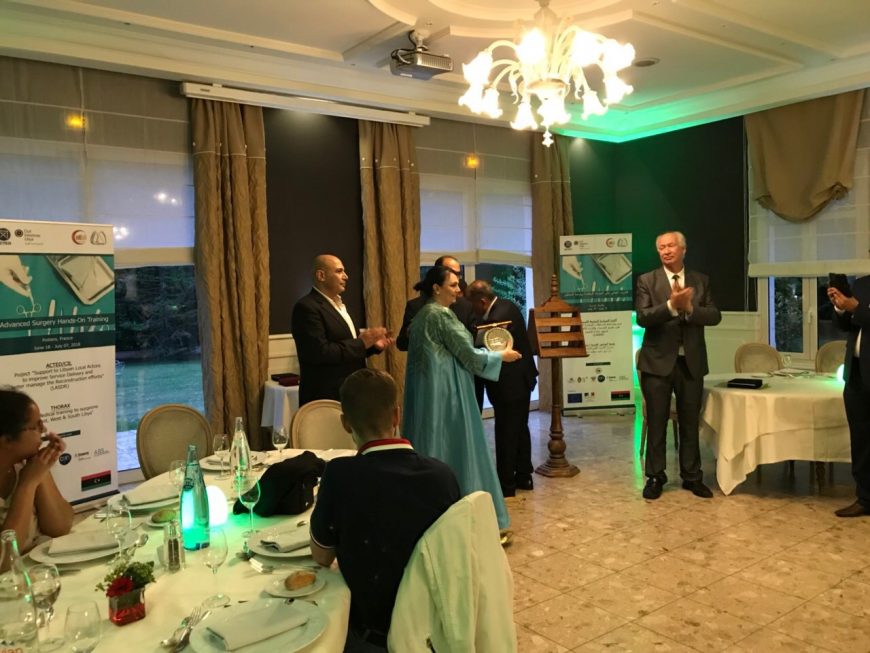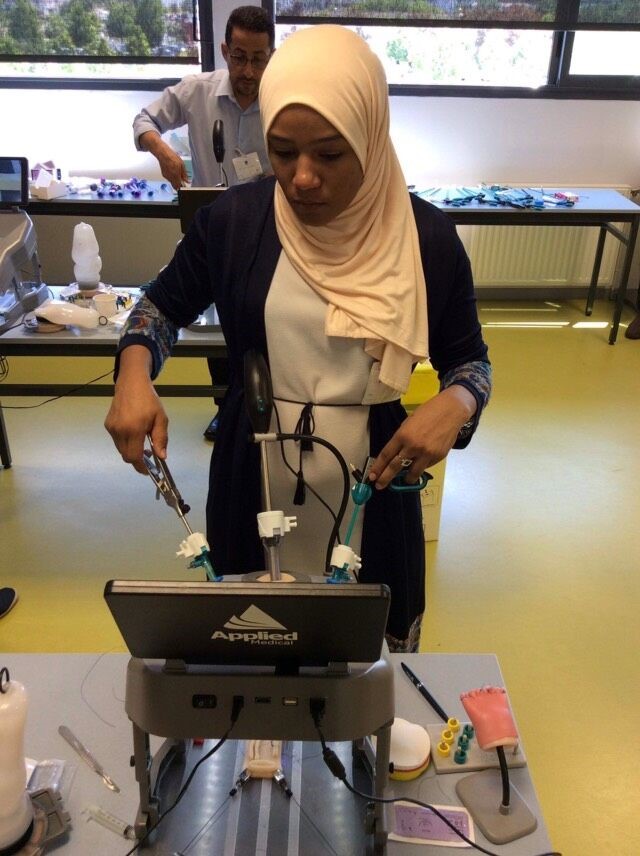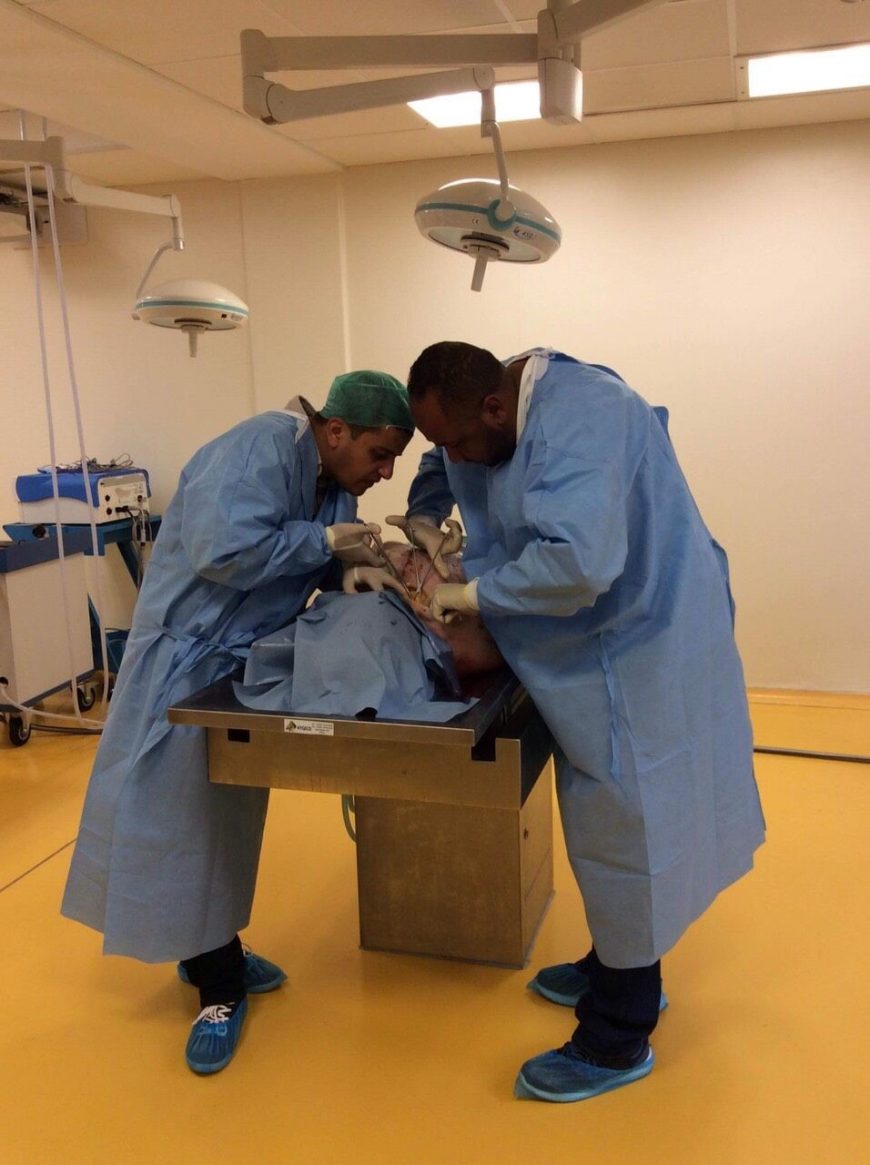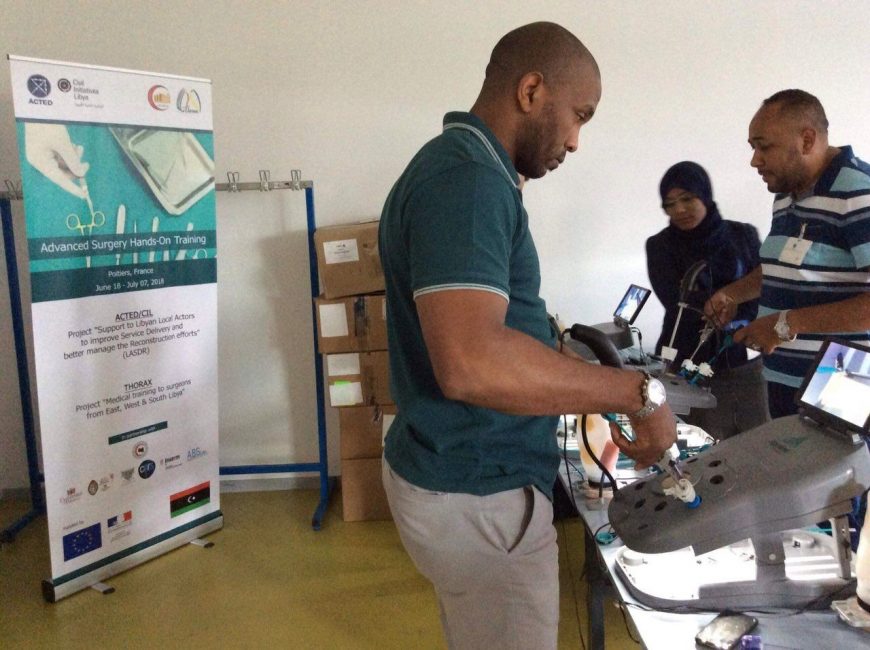Advanced surgery hands-on training for Libyan surgeons in Poitiers
In June 2018, the city of Poitiers in France hosted fifteen Libyan surgeons from the East, West and South of Libya for a three-week advanced surgical gestures training based on practical and video workshops as well as expert modules. Such a workshop allowed Libyan practitioners to be trained to advanced surgical skills using state-of-the art and innovative simulation platforms. This training is part of an ACTED and Civil Initiatives Libya (CIL)-led initiative to support public and health capacities in Libya through cross-Mediterranean decentralized cooperation and partnership.
The training was comprised of a hands-on technical training that included laparoscopic procedures in the fields of vascular surgery and general surgery, in addition to advanced celioscopy and robotic and motion capture technical skills, with the expertise and help of French doctors and researchers from the Poitiers teaching hospital. The training included practical exercises in motion capture on surgical models to acquire and improve the gestures through self-evaluation as well as evaluation by experts.
"Alive" cadavers to train Libyan surgeons
In particular, the training included role-playing, believed to be the best strategy for operation preparation, and in turn implementation by using the SimLife® surgical simulation platform.
The Faculty of Medicine of Poitiers is the first ever to be equipped with a surgical simulation platform created on site by a biomechanics lecturer of the Faculty. SimLife® revascularizes, ventilates and recreates heartbeats on a human cadaveric model. By using infused cadaveric models resembling living human-beings, this advanced training enabled Libyan surgeons to develop their skills and learn new surgical procedures, as the use of cadavers is rare in Libya.
We worked on cadavers for the first time, which was a new experience for us. We also worked on surgical colposcopy and learned new and advanced suturing techniques. This training provided me with an absolutely rich experience.
The three weeks of training were also the occasion for the Libyan surgeons to experience team work and different backgrounds, with the integration of basic, advanced and new surgical techniques brought by their French counterparts. “Introducing the concept of teamwork in the operating room and learning the principles of teamwork and the spirit of cohesion among members of the team to reach the most efficient results fostered a spirit of harmony and initiative in accomplishing their goals, thanks to a successful team dynamic,” said another surgeon trainee from Benghazi Medical Centre.

Contributing to improving local service delivery in Libya
This training took part within one of many projects implemented by ACTED to support Libyan local actors in improving service delivery and better manage the reconstruction efforts in local governance and public and health administration. The city of Poitiers extended its support to Libyan health institutions by training Libyan surgeons in its Faculty of Medicine. This project is funded by the European Union and the French Ministry of Foreign Affairs, and it is implemented by ACTED/Civil Initiatives Libya (CIL) in partnership with the Libyan Board of Medicine, Thorax Association, CNRS Labs and the University of Poitiers’s anatomic laboratory.
One of the trainees added: “The content of the training presented a turning point to all the attending surgeons, whether it was due to the technology used, the mechanisms of concentration and movement, or the theories taught, since they relied on the use and application of rules which all truly encompassed the understanding of the essence of the surgical profession.” Being in Poitiers was also an occasion to enjoy cultural exposure with programme managers and trainees from different nationalities and backgrounds. For them, it portrayed “a better perception of the city’s history, the customs and traditions, and it also presented new networking opportunities”.
Following an experience that they described as unique and rewarding, the Libyan trainee surgeons in turn hope to implement their newly learned techniques when they return to Libya and when the technology needed becomes available.
This project is implemented by ACTED/CIL to Support Libyan local actors to improve service delivery and better manage the reconstruction efforts (LA-SD-R) and funded by the European Union in partnership with Thorax, under the project for “Medical training to surgeons from East, West and South Libya”, funded by the French Ministry of Foreign Affairs.


